dear friend,
imagine that you’re standing on the docks of a sun-warmed marina in capri, italy.
from where i took the picture above, you could walk through the crowds surrounding marina grande until reaching the entrance of a rickety funicular. you could ride its 113-year-old track up high through hillside lemon groves, towards the bustling piazza umberto, and, upon exiting, you could wander through boutique shops and past outdoor cafés in the direction of the fontelina beach club.
these are the steps my fiancé husband S and i unknowingly followed to arrive at the pedestrian-only via tragara, a sylvan street lined by upscale hotels and clandestine villas that one could only dream of staying in.
i write this postcard to you from the entrance of casa di arturo, where pablo neruda stayed toward the end of his four-year exile.
accused of treason by the chilean president in 1948, neruda moved between countries and the homes of his friends until edwin cerio, a famous italian historian, offered him shelter in his villa by the sea.
neruda would pen the captain’s verses: love poems from this scenic refuge, living with his wife and lover of 22 years, matilde urrutia. she inspired this collection, as well as some of the greatest love poems he’d ever write.
perhaps this view inspired him, too.
i was so surprised to stumble upon his villa during the last leg of S and I’s honeymoon, but maybe i shouldn’t have been. as i wrote in my last piece, neruda’s poetry and true love have been deeply intertwined concepts since my teen years.
his lyricism woke me up to the power of the medium. love poems always rang like tasteless, archaic alarm bells in my young ears until discovering the glory of twenty love poems and a song of despair: neruda’s first published collection.
immersed in the subtle sensuality of poems like thinking, tangling shadows and ah vastness of pines, i snapped up a copy and housed it in a chest in my bedroom. i planned on giving it to the man that i’d marry.
with a large red heart on the front, bleeding off the front of the small, matte-black cover, it felt like i’d be handing off my heart someday.
i’ve always felt that love and escape were deeply intertwined.
capri, a lush hideaway, has been a historically popular place to escape. emperor tiberius ruled the roman empire from capri in exile, taking residence at villa jovis: house of jupiter.
centuries later, vladimir lenin toured the ruins of villa jovis while exiled from imperial russia. he was staying with fellow russian exile maxim gorki, a five-time nominee for the nobel prize in literature.
there’s something undoubtedly literary, too, about fleeing into beauty.
zelda and f. scott fitzgerald recovered from illnesses on capri 99 years ago. flaubert, dickens, and rilke fawned over the landscape in letters and travelogues. ivan turgenev visited three times, and said that his feelings for the island’s beauty would stay with him until he died.
recently, a newly-eloped couple took pictures of themselves in front of a hand-painted plaque on their honeymoon.
i had no clue we’d walk down neruda’s old street just days after eloping, but i should’ve considered the circularity of love, of escape, and of poetry.
taking refuge in the author’s words, i found the refuge of the author.
in handing off my heart, i gained it back again.
i’ll write you again soon,
constanze




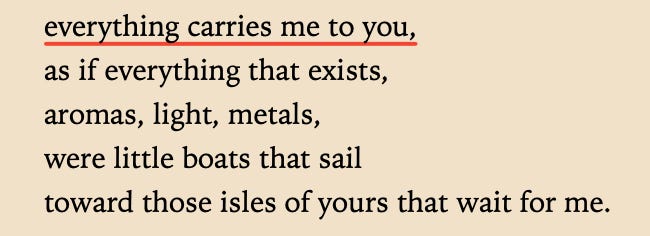
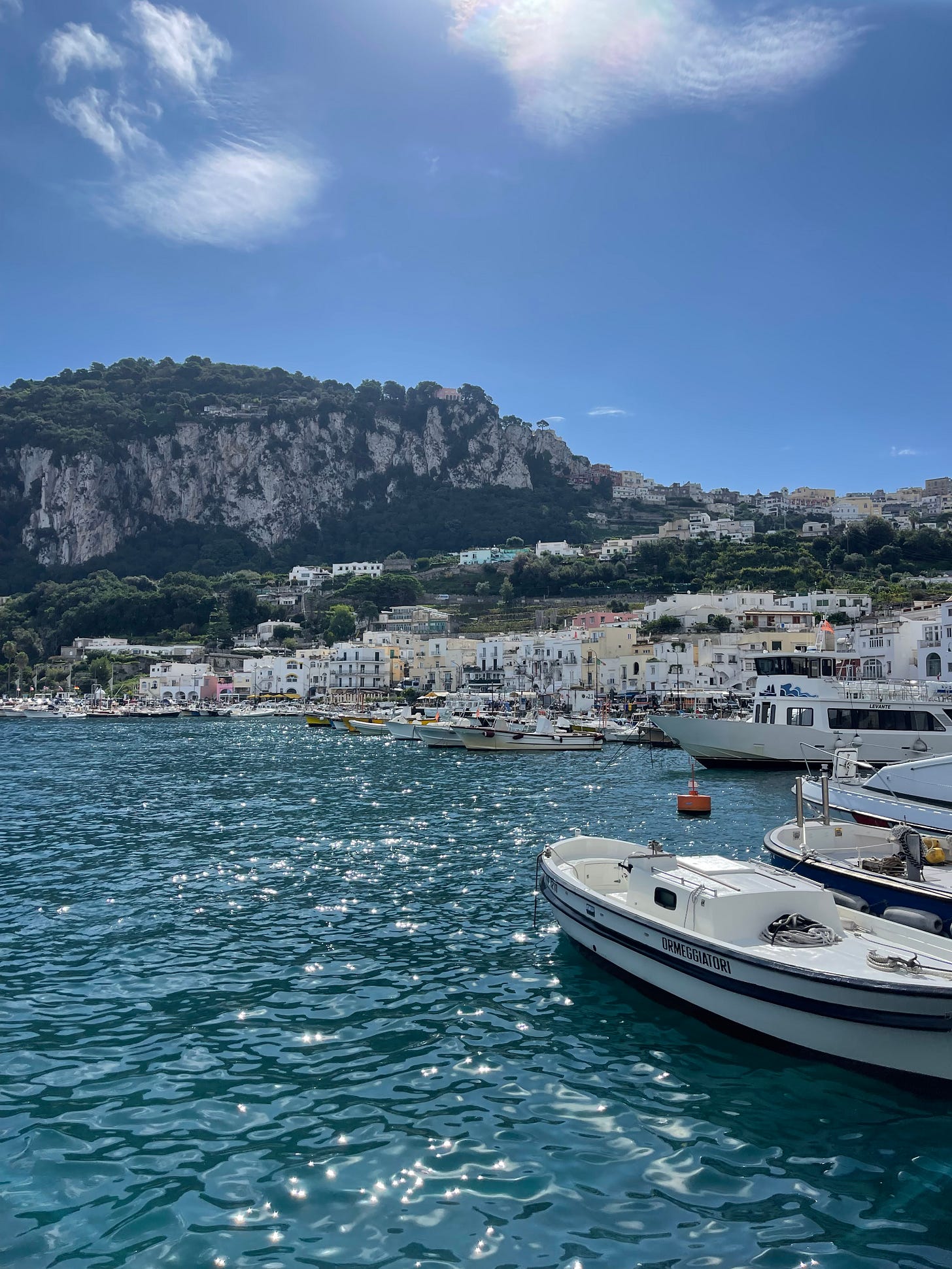
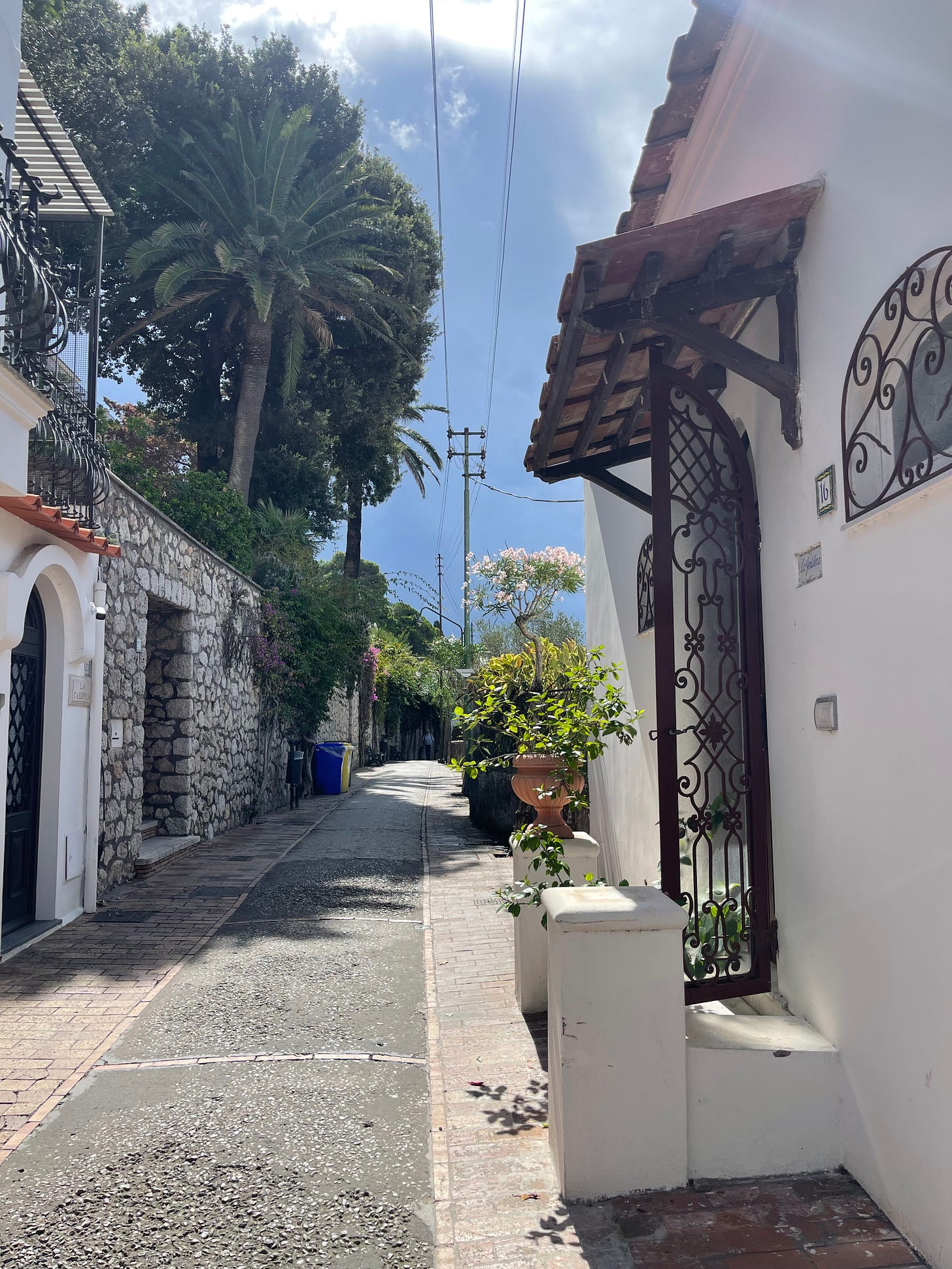
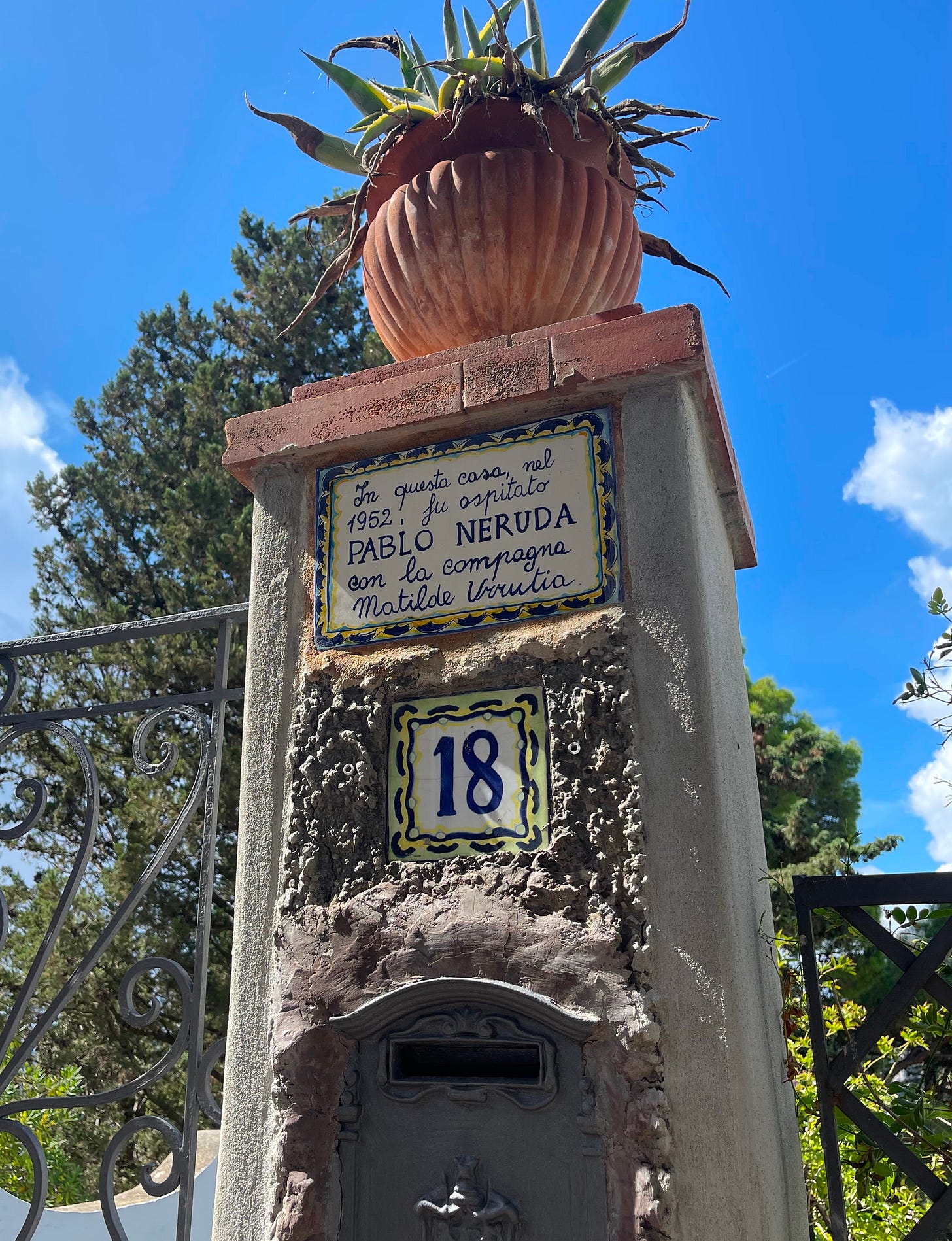
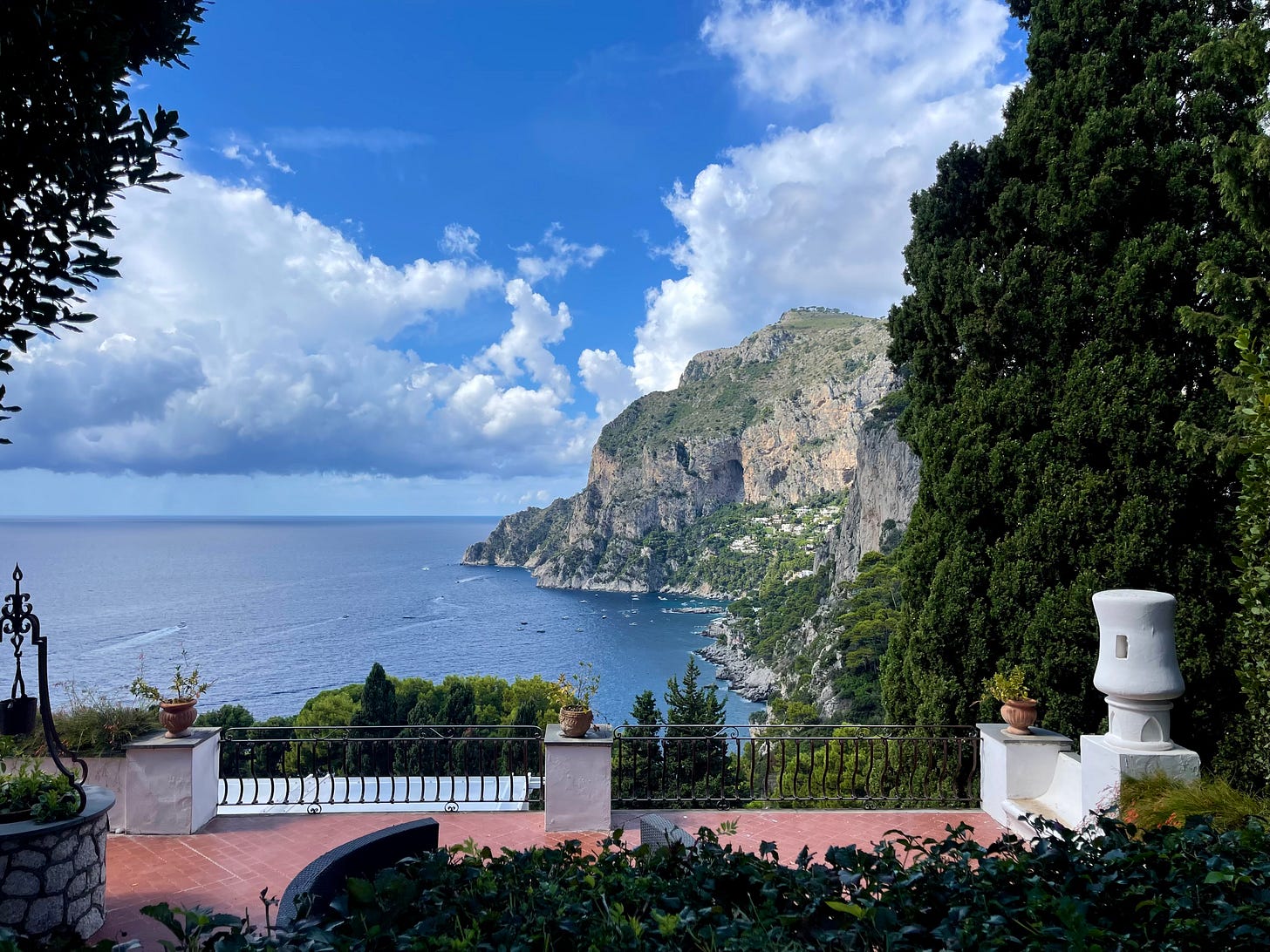
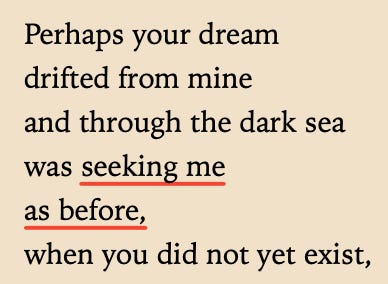
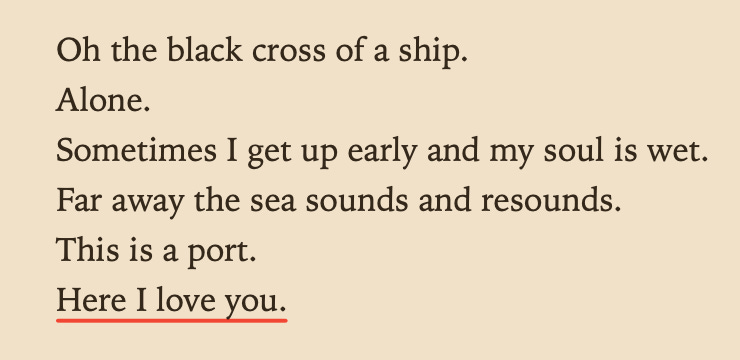
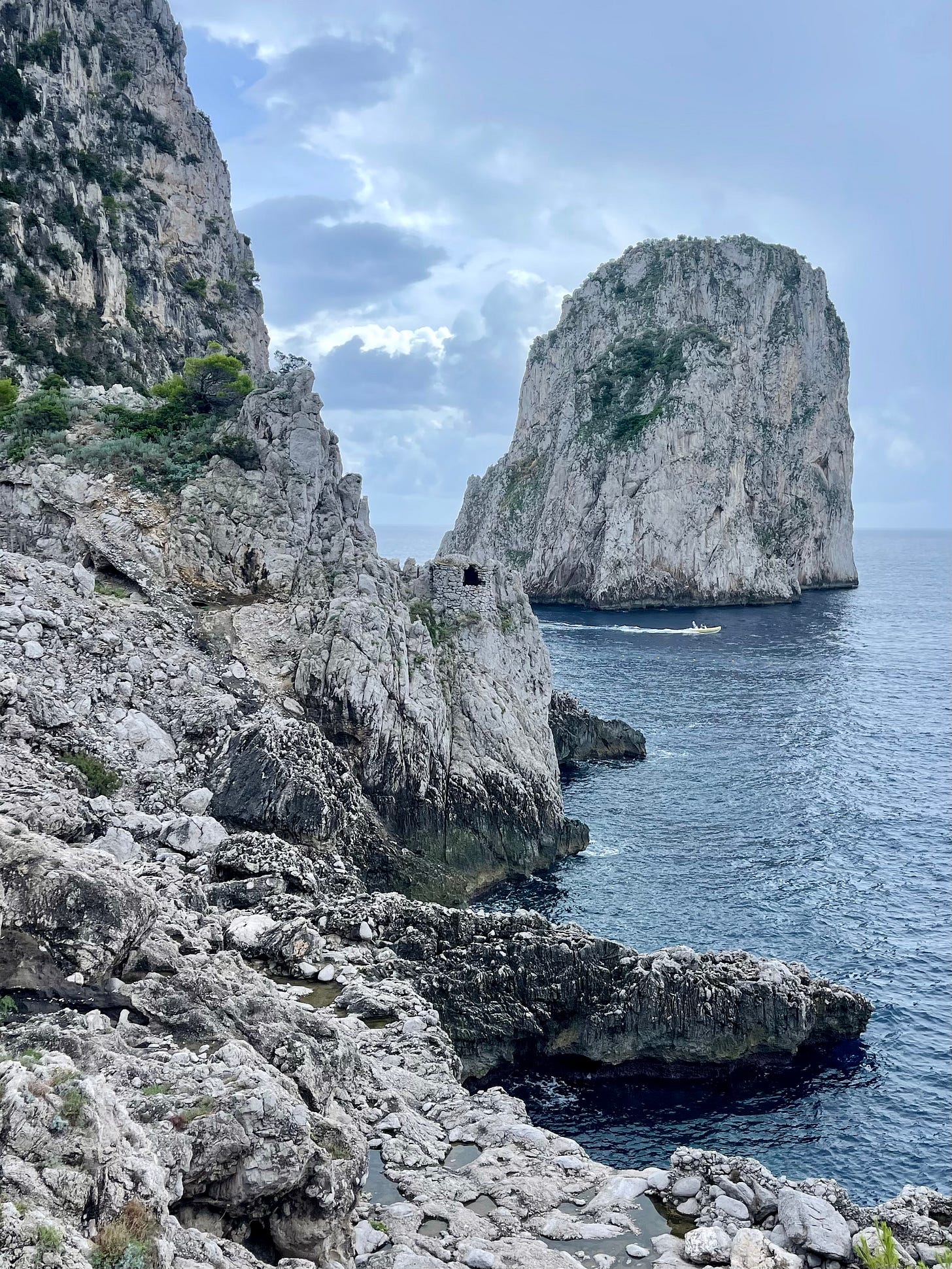

Ah I love Capri! No idea Neruda stayed there though - I should check out his poems.
Your pic of the faraglioni rock formations is such a color palette. beautifully monochromatic